At our recent LMH Research Fair, we encouraged the LMH community to come together to celebrate all things research, in a productive and exciting event. The Fair allows for academics and students from across the college to present and discuss their research in a truly inter-disciplinary environment. A poster session and a series of talks, as well as a display of recently published books and even a telescope model, provided plenty of opportunities to leave traditional ‘echo chambers’ and discuss research in a friendly environment. The event was also an opportunity for undergraduates to explore possible academic careers and topics, and for our alumni to keep abreast of the latest research.
To give a flavour of the diverse range of questions and issues being discussed, we interviewed a few of the students and academics who presented at this year’s Research Fair:
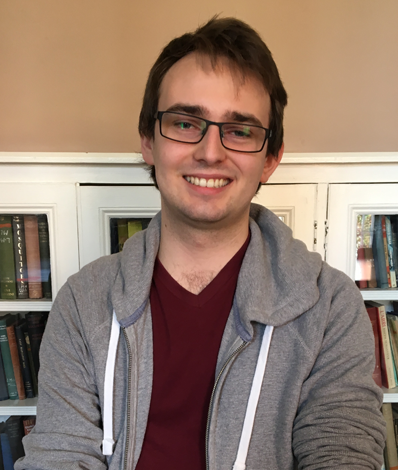
Dafydd Jones, from Pontypridd in South Wales, is doing a Masters in Chemistry. He is examining how carbon dioxide, a damaging greenhouse gas, can be converted into a synthetically useful chemical, using organometallic main group compounds (particularly Gallium and Aluminium hydride compounds). Ultimately, such a process would have positive environmental effects and the resulting chemicals could have many applications. This process of creation and “knowing that you are the first person in the world to make a specific chemical” is one of the most exciting aspects of being a researcher for Dafydd, who hopes to do a PhD in the near future.
The title of Nathalia Schomerus’ master essay is ‘The making and humiliation of the Vatican City in 1929’. This was the year when the Lateran Pacts were signed between the Holy See and the Italian government, establishing the Vatican City as a state. While the Roman Catholic Church was willing to cooperate closely with the Fascist government, Nathalia shows that Mussolini ruined any chance of a stable and peaceful relationship between the two by humiliating the newly-founded Vatican City publicly in his speeches. “Studying the past relationships between state and religious organisations is crucial to understand the world we live in today. Current debates about secularism, fundamentalism, religious states and the role of traditional institutions must be seen in light of this historical background. This has particular urgency because religious and political history was never just a fight between schools of thought, but between deep convictions for which people took the risk of material losses, exile or martyrdom.”
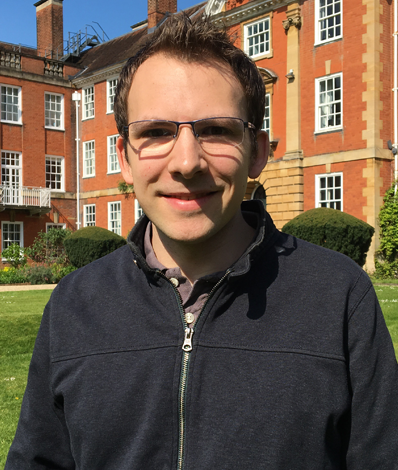
Samuel Hawley, a PhD student previously at Liverpool University and Imperial College, is using GP data from 17,000 rheumatoid arthritis patients. He aims to assess the benefits of an increasingly available class of medicines called TNF inhibitors, and whether they reduce the need for patients to undergo costly (and sometimes risky) joint replacement procedures. The very real impact of his research on patients’ health is a motivator for Samuel. “Doctors rely on findings like mine to help them and their patients make the best decisions to maximise health. With an increasingly ageing population and the NHS under immense financial pressure, it’s crucial to know how well medicines work. I will hopefully be able to deliver a definitive answer to an important research question that could make a genuine difference to the well-being of patients”.
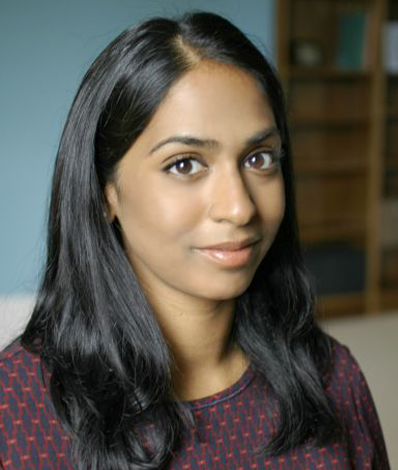
Originally from Ottawa, Canada, Nicole De Silva is the IKEA Research Fellow in International Relations at LMH. Her work focuses on the role of international organizations and international law in regional and global governance. “I am currently focusing on the politics of international courts, which render judgments that uphold states’ and other actors’ international legal obligations. I examine how international courts aim to expand their authority and how states, in turn, resist the influence of international courts. I especially focus on the areas of human rights and international crimes.” This research requires Nicole to conduct interviews and examine archives around the world and allows her to advise policymakers, while also informing her teaching at LMH.
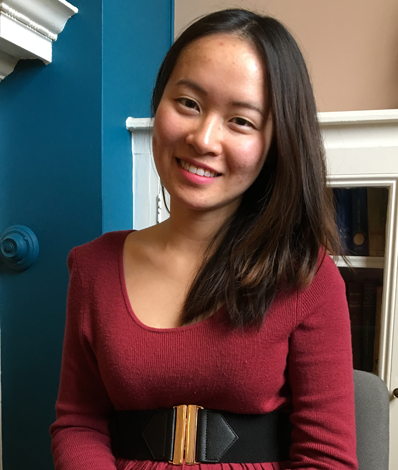
Pingqian Shen is a PhD student in Engineering Science, having previously studied chemical engineering at Imperial College London. Her project addresses a pressing issue- how to store nuclear waste. “Globally we are facing the need of replacing fossil fuels by alternative energy sources. Nuclear energy is one possible option, but it creates a problem- how to dispose of nuclear waste. My PhD project is looking into building an underground repository that allows the nuclear waste to be stored underground safely for thousands of years”. The relevance of her project is evident in its requirements “I regularly communicate my work progress to the Nuclear Decomissioning Authority (NDA) and must ensure that the new technologies that I am developing meet UK and European regulations”.
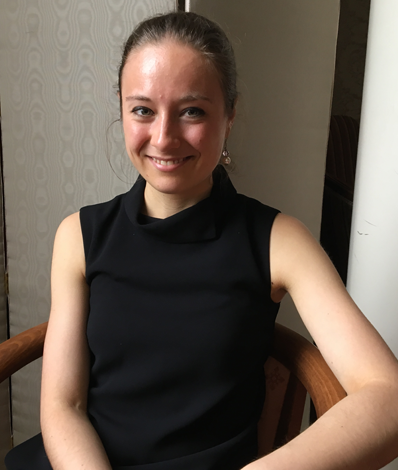
In the 4th to mid 7th century, Egypt was part of the Byzantine Empire and consequently its people had to juggle two languages- Greek, the language of administration, and Coptic, the native language. As part of her PhD in Classical Language and Literature, Victoria Fendel is asking pertinent questions. Did Egyptians in this period struggle with the two languages? Is there any evidence for this in the letters they left behind, and in particular in the mistakes they made whilst writing Greek? Being originally from Germany, Victoria probably had to deal with similar difficulties, as many of us do in current times “In a globalised world, most of us are imperfect bilinguals. My study is just one more case in point that bilingualism is a challenge, specifically in a period far from being well-documented, described or understood.”
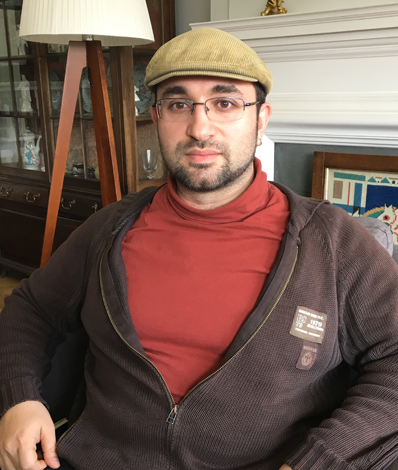
Michail Katsillis is examining a phenomenon known as ‘shadow education’, the systematic, private, extracurricular tutoring (whether in groups or one-to-one) which is used mainly, but not exclusively, to gain access to University. With a background in Mathematics (University of Patras, Greece) and Social Research Methods and Statistics (University of Manchester), in his PhD Michail is trying to examine the role shadow education plays in social and economic inequality in Greece. “My work holds the potential to provide information on a phenomenon about which there is relatively little known, despite being extremely widespread- almost to the point of being universal in some countries. Studying something that affects the lives of so many students and their families worldwide is very exciting indeed!”.
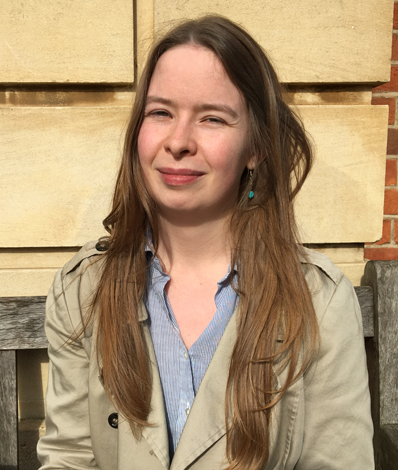
“I work on the tales which were collected by the Brothers Grimm and their importance within German and British culture in the nineteenth century”, explains Elizabeth Ramsey, an AHRC scholar studying for a masters in Modern Languages (German) at LMH. Her current project focuses on the very first English translations of the tales, made in 1823. What changes did the translator make to the original text? Why were those changes made and what were their ramifications, especially as they influenced how the Brothers Grimm themselves changed their stories? “We all grow up with tales, as well as films and entertainment based upon older tales (such as Disney films). It is important to understand what they teach us and how we understand them based on our own cultural context.”
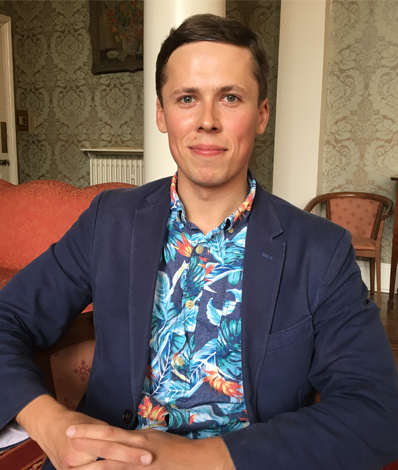
Originally from Poland, Krzysztof Kaczmarek is doing a DPhil in Atomic and Laser Physics at LMH. By examining how light interacts with matter, he has invented a new type of quantum memory, a device that can trap and release single particles of light, or photons. This technology can be used to build photonic quantum computers, using photons to perform calculations much faster than currently available supercomputers. These new quantum computers could be used, for example, to design more efficient solar panels. “I find it amazing that we are able to engineer natural phenomena to do things that we didn’t even know were possible before”.
More from LMH graduates
To see more research videos from our graduate community, click on the YouTube playlist here.